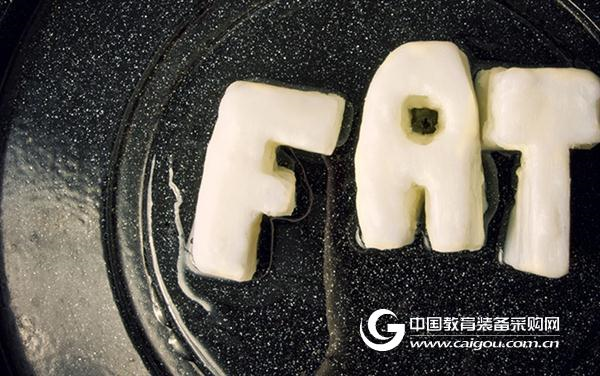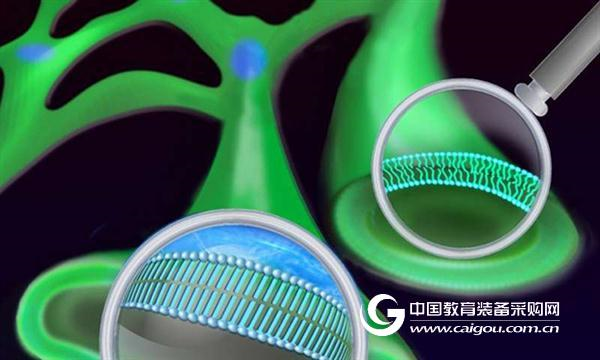Guide
A new study from Columbia University in the United States gives visually dynamic evidence at the molecular level about the question of whether saturated fat is harmful. Researchers have found that saturated fatty acids cause the membrane to "freeze" and the use of this technology can have a major impact on the understanding and treatment of obesity, diabetes and cardiovascular disease.

Whether saturated fat is harmful is controversial
In a society that is increasingly health-conscious, a new fashion diet appears every few years. Vegetarianism, ketogenic diet, Mediterranean diet, etc., because there are too many choices and scientific evidence, it is difficult to know exactly what is healthy and what is not. However, one message is always there: saturated fat is harmful.
However, in the last two years scientists and health organizations have different opinions on the dangers of saturated fat. According to a controlled trial of dietary intake, a study published in The American Journal of Clinical Nutrition on November 30, 2016 found that most healthy people are well tolerated with saturated fat intake. As long as the quality of the fat is good and the total energy intake is not too high, saturated fat may even be healthy.
New research provides molecular level dynamic evidence
The question of whether saturated fat is harmful is that there is no way to determine why excess saturated fat is toxic to cells, and unsaturated fatty acids can protect the cardiovascular system.
To find out, researchers at Columbia University have invented a new microscopy technique to track fatty acids as they are absorbed into living cells. This technique involves replacing the hydrogen atoms on fatty acids with isotope cesium without changing their physicochemical properties as traditional strategies. By conversion, all molecules composed of fatty acids can be observed in living cells by an advanced imaging technique called a stimulated Raman scattering (SRS) microscope.
Saturated fatty acids cause the cell membrane to "freeze"
A recent study published in the Proceedings of the National Academy of Sciences (PNAS) on December 1st said that the process of constructing cell membranes with saturated fatty acids leads to a "frozen" hardening "patches" on the membrane. Under healthy conditions, the membrane should be fluid at the molecular level.
The researchers explained that the stiffness of long-chain saturated fatty acid lipid molecules causes them to be distinguished from other parts of the cell membrane. Under the microscope, the team found that these lipid molecules aggregated into dense "islands" or clusters, and the state of solidification did not move much. As more and more saturated fatty acids enter the cell, these "islands" grow larger, increasing the incompatibility of the membrane and gradually destroying the entire cell.
Corresponding author Wei Min said: "For a long time, we believe that all cell membranes are liquid, allowing embedded proteins to change their shape and react. Before this, almost no solid-like membranes were observed in mammalian cells. We see The phenomenon is very different and surprising."

Saturated fatty acids in the cell membrane (green) form a solidified island (blue) source Columbia University Nicoletta Barolini
Unsaturated fat can "melt" the cured film
On the other hand, Professor Min said that lipid molecules composed of unsaturated fatty acids have a kink in their chains, which makes them not as closely packed as saturated fat molecules. Unsaturated fatty acids move freely, rather than forming a static mass. As they move, these molecules can squeeze into tightly packed saturated fatty acid chains.
The first author, Yihui Shen, said: "We found that the addition of unsaturated fatty acids can 'melt' the membrane 'islands' frozen by saturated fatty acids. This can partly explain the beneficial effects of unsaturated fatty acids, such as the unsaturated fatty acids like fish oil. It has a protective effect in the condition of dyslipidemia."
Yihui Shen added that in this study, researchers were able to see the details of fatty acid distribution and dynamics in living cells for the first time, revealing that saturated fat accumulates in the cell membrane in a previously unknown toxic physical state.
Professor Min said: “Once entering the cell, the behavior of saturated fatty acids can lead to major and often fatal diseases. Visualizing the process of how fatty acids cause lipid metabolism can provide us with direct physical information on how to find effective ways to treat them. Perhaps, we can find a way to stop the accumulation of toxic lipids. We are excited: this discovery may really affect public health, especially lipid-related diseases."
Shanghai Chuangsai Technology has excellent performance, interleukin cytokines, fetal bovine serum, electrophoresis equipment scientific instruments, raw material drug standards, chemical reagents, cell culture consumables, Shanghai Chuangsai, mass products special promotions, welcome to inquire!
Our products to meet your multifaceted requirements. Bookcases and Bookshelves with Doors, Office Bookcase With Doors, Bookcase with doors and drawers, Modern Bookcase with Doors, Bookcase with glass doors, Black Bookcase with doors, Wood Bookcase with Doors. These versatile bookcases offer plenty of space for both home and office, so you can keep your books or supplies all in this compact and efficient bookcase.(Customization or wholesale service: doors /cabinet /fancy wall selves/ desk and chair /nightstand / TV Stand / Media Console / bookcase etc).
Bookcases and Shelves with Doors,Office Bookcase With Cabinet,Bookcase with Drawers,Bookcase with Glass Doors,Modern Wood Boocakse
Ningbo Greenly Industy Co.,LTD. , https://www.chinagreenly.com